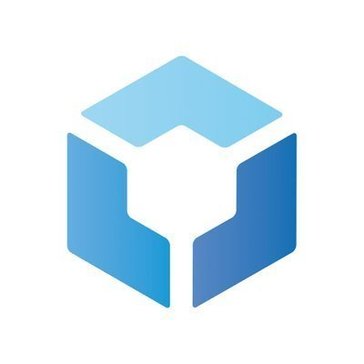Description

Blockpit

Chainalysis KYT
Comprehensive Overview: Blockpit vs Chainalysis KYT
Blockpit and Chainalysis KYT (Know Your Transaction) are both significant players in the cryptocurrency regulatory compliance and analytics space, but they serve different functions and target different markets, although there is some overlap.
a) Primary Functions and Target Markets
Blockpit:
-
Primary Functions: Blockpit specializes in crypto tax reporting and portfolio tracking. Its platform helps individuals and businesses manage, calculate, and report taxes on their cryptocurrency transactions. Blockpit integrates with multiple exchanges and wallets to automate the tax filing process, providing detailed tax reports complaisant with various international standards.
-
Target Markets: The primary target market for Blockpit is individual crypto investors and institutional entities who require sophisticated tax reporting solutions. It is particularly popular among users in jurisdictions with strict crypto tax regulatory environments, such as the European Union.
Chainalysis KYT:
-
Primary Functions: Chainalysis KYT focuses on transaction monitoring and anti-money laundering (AML) compliance. The software provides real-time transaction alerts to detect and manage suspicious activities and ensure AML compliance. It analyzes blockchain transactions to identify risky behavior and assess the legitimacy of counterparties involved in transactions.
-
Target Markets: Chainalysis KYT targets cryptocurrency exchanges, financial institutions, and law enforcement agencies. These clients use the tool to comply with regulatory standards, prevent illicit activities, and understand the risk profiles associated with crypto transactions.
b) Overall Market Share and User Base
-
Blockpit: As a niche player in tax reporting, Blockpit has strengthened its presence in Europe, with a particular focus on German-speaking countries. Its market share is smaller compared to global compliance giants but notable in its specialization. The user base is growing as tax regulations tighten globally.
-
Chainalysis KYT: Chainalysis is a leader in blockchain analysis and compliance services. With a broad international clientele, including many of the world's leading cryptocurrency exchanges and financial institutions, it has a substantial market share in the transaction monitoring space. Its user base includes major corporate clients and government agencies.
c) Key Differentiating Factors
-
Functionality Focus: The primary differentiation between Blockpit and Chainalysis KYT lies in their core functionalities. Blockpit is centered on tax reporting and helping users with compliance in tax obligations, while Chainalysis KYT is focused on transaction monitoring and AML compliance.
-
Market Reach: Chainalysis KYT has a more global reach due to its expansive focus on fraud detection and AML compliance, which are fundamental concerns for exchanges worldwide. In contrast, Blockpit is more focused on tax reporting and is primarily influential in regions with advanced and enforced cryptocurrency tax laws.
-
Integration and Partnerships: Chainalysis KYT benefits from extensive partnerships with governments and major exchanges worldwide, enhancing its credibility and breadth of data sources. Blockpit, on the other hand, places a stronger emphasis on integrations with accounting and tax software to aid in its reporting capabilities.
-
Regulatory Adaptation: Blockpit is finely tuned to adapt to the rapid changes in crypto tax laws, providing constant updates and regional compliance specifics. Chainalysis KYT is more centered on universal compliance issues such as AML but maintains flexibility to regional AML laws.
Both companies provide critical services in the crypto space but have carved out distinct niches based on the different aspects of compliance they address. As regulatory environments for cryptocurrencies continue to evolve, both Blockpit and Chainalysis KYT may adjust and broaden their services to meet new demands.
Contact Info

Year founded :
Not Available
Not Available
Not Available
Not Available
Not Available

Year founded :
Not Available
Not Available
Not Available
Not Available
Not Available
Feature Similarity Breakdown: Blockpit, Chainalysis KYT
Blockpit and Chainalysis KYT are both tools designed to help with cryptocurrency transaction monitoring and compliance, but they cater to slightly different needs within the industry. Here's a feature similarity breakdown for these tools:
a) Core Features in Common
-
Transaction Monitoring: Both platforms provide robust tools for tracking and monitoring cryptocurrency transactions. They help detect fraudulent activities and ensure compliance with regulatory standards.
-
Risk Scoring: These tools offer risk assessment features, producing risk scores for transactions or wallets based on various criteria, such as transaction history and connections to known illicit activities.
-
Regulatory Compliance Tools: Both platforms provide solutions aimed at helping companies achieve compliance with relevant regulations concerning Anti-Money Laundering (AML) and Countering the Financing of Terrorism (CFT).
-
Analytics and Reporting: They offer analytics tools to generate detailed reports, which are essential for audits, regulatory filing, and internal reviews.
-
API Integration: Both solutions support easy integration with other platforms through well-documented APIs, enabling seamless data flow into existing systems.
b) User Interface Comparison
-
Blockpit: Blockpit’s interface tends to be more user-centric, especially focusing on individual crypto investors through its tax reporting services. It is designed to be intuitive and easy to navigate for users who may not be experts in financial compliance or blockchain technology. The interface often includes dashboards that visually represent tax liabilities and compliance issues.
-
Chainalysis KYT: Chainalysis KYT offers a more professional and technical interface aimed at institutional and business clients. It’s designed to handle complex datasets and provides detailed insights into transaction activities. The interface is sophisticated, with a focus on detailed, data-driven insights and visualized transaction flows, catering to users experienced with compliance and risk management.
c) Unique Features
-
Blockpit:
- Tax Reporting: One of Blockpit’s standout features is its focus on cryptocurrency tax reporting. The platform simplifies the tax process for individuals and businesses by offering automated crypto tax calculation and comprehensive tax reports.
- Portfolio Tracking: It provides extensive features for tracking a user's cryptocurrency portfolio, beyond just compliance and risk management.
-
Chainalysis KYT:
- Real-Time Transaction Monitoring: Chainalysis KYT excels in providing real-time transaction monitoring, allowing businesses to instantly assess risk and comply with regulatory checks.
- Advanced Data Visualization: The platform provides complex network graphs and visualizations that allow users to map out and understand transactional relationships and network patterns within the blockchain.
- Broadest Coverage: Chainalysis KYT is known for its widespread geographic and exchange coverage, analyzing data from a wide range of cryptocurrencies and sources.
In summary, while both Blockpit and Chainalysis KYT share common features in compliance monitoring and transaction tracking, Blockpit sets itself apart with its tax reporting capabilities, whereas Chainalysis KYT distinguishes itself with advanced real-time monitoring and sophisticated data visualization, catering largely to organizational users dealing with global transactions and compliance issues.
Features

Tax Reporting
Portfolio Management
Security Features

Global Coverage
Real-Time Transaction Monitoring
Comprehensive Reporting
User-Friendly Interface
Advanced Risk Scoring
Compliance Tools
Risk Scoring
Detailed Reporting
Best Fit Use Cases: Blockpit, Chainalysis KYT
Blockpit and Chainalysis KYT serve distinct purposes in the blockchain and cryptocurrency space, and their best use cases differ accordingly. Here's an outline of where each of these tools excels:
Blockpit
a) For what types of businesses or projects is Blockpit the best choice?
-
Cryptocurrency Tax Reporting:
- Individual Crypto Investors: Blockpit provides an easy-to-use solution for individuals who need to track their cryptocurrency investments and accurately report taxes.
- Crypto Tax Consultants: Professionals who manage clients' crypto taxes can use Blockpit as a tool to streamline tax reporting, ensuring compliance with various jurisdictions.
-
Businesses with Crypto Holdings:
- Crypto Exchanges: Exchanges can use Blockpit to offer integrated tax reporting solutions for their users, enhancing customer satisfaction and providing added value.
- Investment Funds and Asset Managers: Those managing portfolios that include cryptocurrencies can leverage Blockpit for accurate tax compliance and performance tracking.
-
Accounting Firms:
- Firms Specializing in Crypto: Accounting firms that have a specialized department for dealing with cryptocurrencies can use Blockpit to keep track of clients' transaction histories and tax liabilities.
Chainalysis KYT
b) In what scenarios would Chainalysis KYT be the preferred option?
-
Compliance and Risk Management:
- Cryptocurrency Exchanges and Wallet Providers: Chainalysis KYT helps these platforms adhere to compliance requirements by monitoring transactions for suspicious activity or illicit behavior.
- Financial Institutions: Banks and other financial services providers entering the crypto space can use KYT to manage risk associated with cryptocurrency transactions and ensure compliance with anti-money laundering (AML) regulations.
-
Government and Law Enforcement Agencies:
- These organizations use Chainalysis KYT for tracking and investigating illicit activities related to cryptocurrencies, such as fraud, money laundering, and terrorism financing.
-
Fintech Companies Integrating Crypto:
- Fintech firms that offer cryptocurrency services can use KYT to ensure that their operations are compliant with regulatory requirements, minimizing the risk of reputational and legal issues.
d) How do these products cater to different industry verticals or company sizes?
-
Industry Verticals:
- Taxation and Accounting (Blockpit): Focuses on industries dealing with financial services, taxation, and accounting, helping individuals and businesses ensure compliance with tax obligations related to cryptocurrencies.
- Compliance and Security (Chainalysis KYT): Serves industries with a strong emphasis on security and compliance, such as banking, financial services, and government sectors.
-
Company Sizes:
- Small to Medium-sized Enterprises (SMEs): Blockpit is well-suited for SMEs and individual practitioners due to its user-friendly interface and relatively straightforward integration into existing tax and accounting processes.
- Large Enterprises and Government Bodies: Chainalysis KYT caters to larger organizations and government entities that require sophisticated tools to track and analyze vast amounts of cryptocurrency transactions for illicit activities.
Each solution targets a specific aspect of the cryptocurrency ecosystem—Blockpit focuses on tax compliance and reporting, while Chainalysis KYT is centered around security, risk management, and regulatory compliance. Both are essential in their respective niches and provide tailored solutions based on the needs of their users.
Pricing

Pricing Not Available

Pricing Not Available
Metrics History
Metrics History
Comparing undefined across companies
Conclusion & Final Verdict: Blockpit vs Chainalysis KYT
When evaluating software solutions like Blockpit and Chainalysis KYT for crypto transaction monitoring and compliance, it's important to consider the unique strengths and weaknesses of each platform. Here's a conclusion and final verdict addressing each of your questions:
a) Best Overall Value
Blockpit and Chainalysis KYT serve different aspects of the cryptocurrency monitoring and compliance landscape, and determining the best value depends heavily on the specific needs of the user.
-
Blockpit: Known for its user-friendly interface and focus on tax reporting for individual traders and small-to-medium enterprises. Its value lies in its comprehensive yet intuitive approach to managing crypto taxes and compliance documentation, making it ideal for users primarily concerned with accurate tax reporting.
-
Chainalysis KYT: Offers robust transaction monitoring and AML compliance solutions tailored more towards larger institutions such as exchanges, financial institutions, and government agencies. Its real-time data analytics and extensive blockchain coverage provide significant value for users needing detailed insights and regulatory compliance.
In terms of best overall value, Chainalysis KYT may offer greater comprehensive features for institutions and enterprises focused on compliance, security, and regulatory obligations, whereas Blockpit might be more valuable for individual traders or smaller businesses prioritizing efficiency in tax reporting.
b) Pros and Cons
Blockpit:
Pros:
- User-friendly with a clean UI, making tax reporting straightforward.
- Automated synchronization with multiple exchanges and wallets.
- Affordable pricing tiers suitable for individuals and small enterprises.
- Focuses on accurate tax reporting with detailed transaction histories.
Cons:
- Limited scope in AML and compliance features compared to Chainalysis.
- May not scale as effectively for larger businesses with complex compliance needs.
- Primarily focused on tax, less on real-time transaction monitoring.
Chainalysis KYT:
Pros:
- High scalability suitable for large enterprises and financial institutions.
- Real-time monitoring and alerts for suspicious activities.
- Comprehensive blockchain analytics.
- Strong partnerships in the crypto industry enhancing data reliability.
Cons:
- More complex, potentially requiring specialized training for effective use.
- Higher cost, which might be prohibitive for smaller users or individuals.
- Primarily focused on compliance and regulatory aspects, less on tax functionality.
c) Recommendations
For Users Needing Tax Solutions:
- Choose Blockpit if your primary concern is simplifying tax reporting. It's a better fit for individuals and small-to-medium businesses primarily interested in managing taxes with minimal hassle.
For Users Needing Compliance Solutions:
- Opt for Chainalysis KYT if you are an institution that requires extensive transaction monitoring, AML compliance, and security analytics. It's best suited for larger businesses, exchanges, and regulatory institutions.
General Recommendations:
- Evaluate the scale and scope of your operations. If you're anticipating growth or have a high volume of transactions needing compliance oversight, Chainalysis KYT might provide the infrastructure support you need.
- Consider your budget and the learning curve each solution entails. While Chainalysis offers more features, Blockpit may suffice if your primary requirement is streamlined tax documentation.
- It might be beneficial to conduct a trial or demo with both platforms to assess first-hand which aligns better with your workflow and operational objectives.
Ultimately, the decision should align with your specific needs, budget, and future growth plans.
Add to compare
Add similar companies



